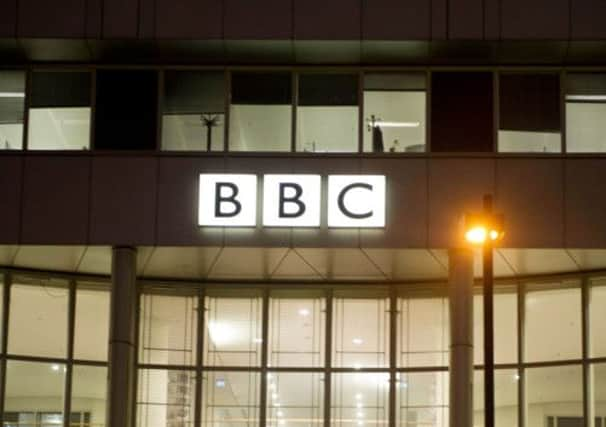Jennifer Dempsie: Why Scotland deserves better from BBC


The BBC’s boat has definitely been rocked.
On top of this, headlines such as “Less than half of all Scots back BBC Scotland” in this newspaper have made many question whether Auntie really knows best. Are we, as Scottish licence fee payers, truly getting value for money?
The BBC’s Audience Council report revealing that a minority of Scots believe it is good at representing them in its coverage of news and current affair is not exactly a ringing endorsement.
Advertisement
Hide AdAdvertisement
Hide AdThe report highlighted the good news that there has been a rise in programmes made in Scotland, but admitted “the need to address the ongoing issue of finding the right balance of Scottish news and news which only affects other parts of the UK,” and highlighted that the “network television programming made in Scotland should be more reflective of Scotland”. So there we have it. In an age of digital revolution, the BBC’s broadcasting clearly still has not adapted to devolution.
On top of scandals, apparent inability to adapt to devolution or represent Scotland properly we have a categorical failure of the BBC to spend Scotland’s share of its licence fee in Scotland or be upfront about the figures. In the Corporation’s latest annual report – also published this month – there was no breakdown of spending on BBC Scotland as a whole. This isn’t really in the spirit of “setting new standards of openness and transparency” as promised in the 2010 BBC Strategy.
The BBC is also a tad shy about publishing licence fee revenue figures in Scotland, but based on our population share it is thought to be over £320m before Scotland’s share of Auntie’s other income sources from its commercial operations is considered.
However, it’s not all bad news: the BBC has at least increased its Scottish programming from the woeful 2.6 per cent share of the UK’s network programming revealed in 2006.
Unfortunately, the figures show that this progress is being reversed. BBC Network Share of TV programme spend in Scotland fell from 9 per cent in 2011 to 7.6 per cent in 2012. And it looks to slide back further under current plans that envisage it slipping to £86m in 2016/17. This is on top of shedding up to 120 jobs by 2017 as part of a drive to cut its budget by 16 per cent.
All of this is in stark contrast to what’s happening at Channel 4. Not only are they spending significantly on Scottish production but yesterday it was revealed they are in consultation with Ofcom to consider increasing - that’s right, increasing – C4’s nations production quota from 3 per cent to 9 per cent by 2020. C4 are clearly throwing down the gauntlet to the BBC.
So what will all this mean for Scotland’s referendum coverage? And if the BBC has been unable to deliver adequately in a devolved Scotland, can it deliver in an independent one?
In a May report from Holyrood’s education and culture committee, MSPs questioned whether the Corporation was ready to deliver the “comprehensive, authoritative” coverage which had been promised for the referendum and major events such as the Commonwealth Games.
Advertisement
Hide AdAdvertisement
Hide AdThe shortage of Scottish content and programming isn’t caused by a lack of Scottish creative talent. As part of BBC Scotland’s £5m investment package to boost coverage of the Scottish independence referendum, James Naughtie is to be parachuted in from Radio 4’s Today programme. But will £5m and James – respected as he is – be enough to do the job properly against a backdrop of savage cuts and underperformance? I doubt it.
In an answer to a House of Commons question asked by John Robertson, it was revealed that between 2008 and 2011 there was a fall of 14,500 people employed in the creative industries in Scotland and 32,500 drop across the UK. Clearly Scotland is facing the brunt of this and it would be naive to think that the BBC’s continual underspend and its job cuts have nothing to do with it.
The irony is that people in Scotland are two years away from their most important decision in 300 years, and we have the choice of hundreds of channels at our fingertips. Yet Scotland does not have an English-language public service broadcasting channel of its own.
Imagine if we could ensure that £320m-plus licence fee were spent in Scotland for Scotland. The knock-on effects for our broadcasting and creative industries as a whole would be huge.
At Edinburgh International Television Festival last August the First Minister said he would establish a national public service broadcaster based on the existing staff and assets of BBC Scotland in an independent Scotland.
With our own broadcasting network with proper revenue, we would generate more jobs, reverse the chronic brain drain for the sector, establish a more confident Scottish sense of identity and even have more money to buy in programmes from other places (including our BBC favourites if we wanted). An independent Scotland could also use fiscal policy to attract additional TV and film production.
In the here and now, Scotland deserves proper public service broadcasting for this exciting time. I hope BBC Scotland can step up to the task, but the reality is that this is going to be a tall ask against the backdrop of cuts and underspend.
If the people of Scotland vote Yes next September, it could be the biggest challenge our dear Auntie has ever faced. If they don’t get coverage of the referendum right and do it justice, it’s not exactly going to serve them well for the future. In the meanwhile, the lack of transparency around the BBC’s revenue and assets doesn’t help the case much either.
• Jennifer Dempsie is a former special adviser to First Minister Alex Salmond